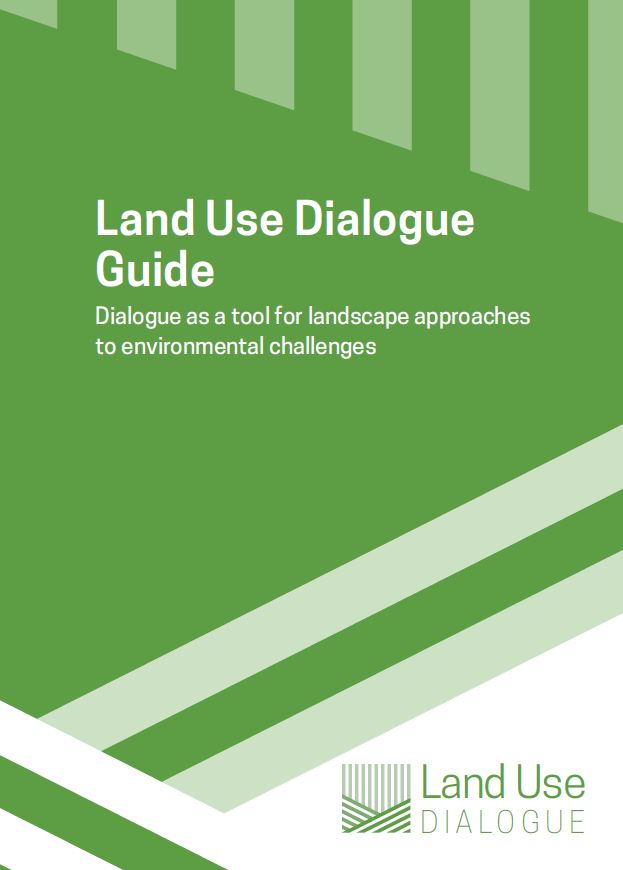Land Use Dialogue Guide: Dialogue as a Tool for Landscape Approaches to Environmental Challenges
Land Use Dialogue (LUD) is a dialogue process that supports multi-stakeholder decision making around key socio-environmental and ecological issues at the landscape level. This guide introduces the LUD and presents core principles that should always inform these processes. These principles include the need to be locally driven but internationally formed, representative of all stakeholders in the landscape and an entirely neutral process with no predetermined outcomes.
The guide also outlines case studies, to illustrate how LUD has worked in practice. These case studies are located in Santa Catarina, Brazil, the Ihemi landscape, Tanzania and from a LUD process that took place across a cluster of landscapes in Ghana, Tanzania, Uganda, and the Democratic Republic of Congo. Before the guide concludes, lessons learned that have emerged as LUD processes have been globally rolled out are presented. Some of these lessons learned include for the need for capacity building of all stakeholders to ensure all participants are able to represent themselves fully for a truly equal LUD. As well as ensuring representatives from all sectors are considered and engaged as part of the process.
The LUD approach is designed to support multi-stakeholder processes for collaborative, adaptive, land management across sectors. The LUD is founded on the premise that through dialogue, people and institutions can create more sustainable, locally-driven, and durable solutions to landscape challenges as part of a landscape approach.
